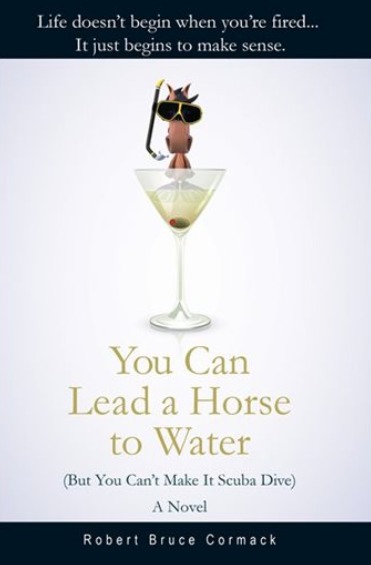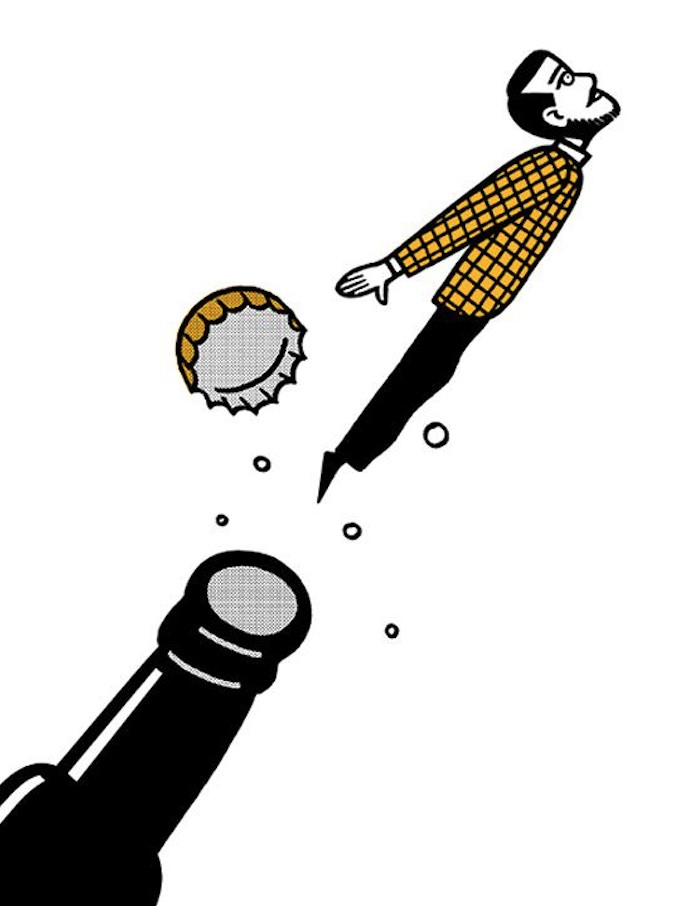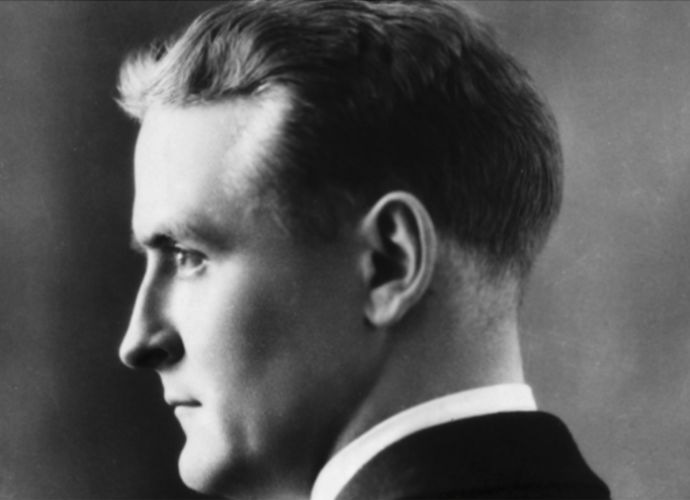How To Pleasure Yourself.
According to Nietzsche, being accepted leads to self-loathing. What you really want to be is scandalous. That's just plain sexy.

“You know you can’t please everyone, so you got to please yourself.” Ricky Nelson
I don’t quote Nietzsche much, since he throws words like “slaves” around a lot. He believed even the act of wanting to be admired—or even loved—takes away from our instinctual energy, leading to self-doubt and self-loathing.
How many of us have come out of a meeting either doubting or loathing ourselves? Nietzsche called this losing the “ascetic ideal,” which is a fancy way of saying we failed at being popular (you need admiration to be popular, supposedly, though since I’ve never been either, this is a bit of a revelation).
Popularity, as we all know, is surrounding ourselves with people who like us. When someone doesn’t agree with what we say, or do, it makes us question ourselves. We question our popularity, not our methodology.
The reason Nietzsche calls this “slavish” is because when we seek acceptance, our need for inclusiveness is more important than our individuality. We just want to be like the other guy (or girl), blending in rather than standing out.
It’s called “herding,” and the more we herd, the less we think about greatness (which, according to Nietzsche, is the only thing that separates us from animals). Without thinking of greatness, we tend not to think period. We become robotic, spending more time on process and deadlines than the content itself.
She tells him Ted (her boss) likes to see a bunch of tag lines and then he’ll decide on a strategy.
Remember in Mad Men when Don Draper is re-instated but now has to work under Peggy? When Peggy asks him for twenty tag lines, he asks, “What’s the strategy?” She tells him Ted (her boss) likes to see a bunch of tag lines and then he’ll decide on a strategy.
Don doesn’t say anything, but you know what he’s thinking. With all the copywriters coming up with “twenty tag lines,” they aren’t creating for the product. They’re creating for Ted.
How many of us have replaced instinct with the need to please our boss or our client? How many of us ask, “What do you think the client wants?” And how often do we avoid speaking for fear it won’t meet with the boss’s approval?
As Nietzsche explains, in this kind of “herding structure” it opposes the development of inspiring people, promoting instead people who are modest, submissive and conforming. Don can’t conform because it’s already been established in the plot that he seeks pleasure
It’s called pleasuring ourselves — not in a sexual way — but something equally as rewarding.
Just as he chases women, and drinks, and smokes, he creates for the same reason. It not only sends all those endorphins jumping up and down, it also hits those pleasure centres than so many people disregard through herding.
It’s called pleasuring ourselves—not in a sexual way—but something equally as rewarding. Lots of famous artists, writers, scientists, architects walked around with erections, mostly because invention does that to a person.
Creation is like finding a lover for the first time. We’re struck by the limitless possibilities and feelings we never knew we had. We feel alive because love, sex, scandal all exist in their own dimension. Nietzsche calls this greatness.
When Simone de Beauvoir said: “The writer of originality, unless dead, is always shocking and scandalous,” she meant originality will always seem dirty. We consider it scandalous because, in its own way, it breaks with convention and therefore threatens the herd.
If you’re looking for acceptance first, you may miss love altogether. Love isn’t acceptance. Love exists on its own.
How many meetings have you attended where someone says something out of the ordinary, and everyone looks at them like they need help? It’s upsetting to the herd because they know that person is pleasuring themselves. It’s like they’ve found love, and the rest of the room hasn’t. This forms jealousy, since we all want love, but we’re more interested in acceptance.
Think of dating sites where people say “I wish I could find one person who will accept and love me”? In a way, those two words are mutually exclusive. If you’re looking for acceptance first, you may miss love altogether. Love isn’t acceptance. Love exists on its own. You don’t accept love, you take it for what it makes you, which again, to quote Nietzsche, is greatness.
In other words, love and creativity are both types of pleasuring, and therefore scandalous. As George Lois once said: “What I try to teach young people, or anybody in any creative field, is that every idea should seemingly be outrageous.”
When Nietzsche claims we “doom ourselves to mediocrity through acceptance,” he may be talking about originality, or he may be talking about Don Draper.
It’s interesting that Don Draper was fashioned in some respects on George Lois. Both men recognized the importance of outrageousness as a symptom of art. To upset the herd is to be an artist, whether you’re a copywriter, an art director, or a short order cook. Anyone can be outrageous simply by what they’re making. I’ve eaten a few outrageous burgers. That was art to me.
When Nietzsche claims we “doom ourselves to mediocrity through acceptance,” he may be talking about originality, or he may be talking about Don Draper. Draper couldn’t come up with “twenty tag lines” for Ted, because volume isn’t original. It stops being original when you’re asked to come up with twenty tag lines.
At an agency once, one of the young account executives told me to come up with twenty tag lines. “The client will tell us which one to go with,” she explained. I responded by saying, “If we’re asking the client to choose from twenty tags, shouldn’t they be asking why we’re charging so much? Would you want a lawyer coming up with twenty ways to sue someone?”
Contrary to what we learn from research, consumers aren’t looking for words or phrases or visuals they agree with. Whether they can articulate it or not, they want to see someone pleasuring themselves. It may scare them at first, but new ideas always do. Remember, Fantasia was hated originally. People didn’t know what to think. Sometimes you have to sleep on originality.
If we don’t see originality today, it’s because nobody wants scandal. We want acceptance. We want “likes” on Facebook.
How many researchers suggest bringing a focus group back a week after looking at a concept? It doesn’t happen because they want a quick response, believing first responses are always the right ones.
If we don’t see originality today, it’s because nobody wants scandal. We want acceptance. We want “likes” on Facebook. We’ll go to an art gallery and admire post-impressionist art, but that’s only because those post-impressionists are dead. They don’t threaten us.
We’re safe when artists are dead, or when they’re famous. We let those people slide. They took at chance and it worked. Sometimes originality works.
We’d like to think Einstein is wrong, but we know he’s not. All the “likes” on Facebook isn’t nearly as good as pleasuring yourself.
In our everyday life, though, we avoid it. We don’t want scandal or people thinking they can pleasure themselves in public. We prefer the safety of sameness. We want acceptance and agreement. Most of all, we want agreement. Trouble is, as Albert Einstein once said: “If everyone agrees with you, it’s wrong.”
We’d like to think Einstein is wrong, but we know he’s not. All the “likes” on Facebook isn’t nearly as good as pleasuring yourself. That takes originality, and we’d rather watch than take part, which makes us what Nietzsche would call “robotic voyeurs.”
I made that up. But it’s an interesting term, isn’t it? Robotic voyeurs. That may sound scandalous, too but, frankly, most of us are robotic voyeurs already.
Robert Cormack is a freelance copywriter, novelist and blogger. His first novel “You Can Lead a Horse to Water (But You Can’t Make It Scuba Dive)” is available online and at most major bookstores. For more details, go to Yucca Publishing or Skyhorse Publishing.

Articles from Robert Cormack
View blog
All I did was write the first Canadian rock jingle. · I still remember how we wore our jeans with le ...

A year later, he earned 20 times that. · “No decent career was ever founded on a public.” F. Scott F ...

This world is getting very stupid and we might die wondering if this was the plan. · “Life is like a ...
You may be interested in these jobs
-
We are looking for a creative Fiction Editor/Writer to help produce addictive serialized novels for mobile reading apps. · We utilize AI tools to optimize the writing process but need human touch to inject soul into prose. · ...
2 weeks ago
-
We are looking for an insurance broker with a RIBO license to join our team and serve our Ontario clients. · Advising clients on pleasure boat insurance products · FOLLOWING UP ON ONLINE QUOTE REQUESTS WITH POTENTIAL CLIENTS · ...
Toronto1 month ago
-
Join our teams as an Assistant Restaurant Manager at Club Med resorts worldwide! You'll supervise restaurant staff, assist with service organization and team development while creating unforgettable experiences for guests. · ...
Montreal, Quebec1 month ago


Comments